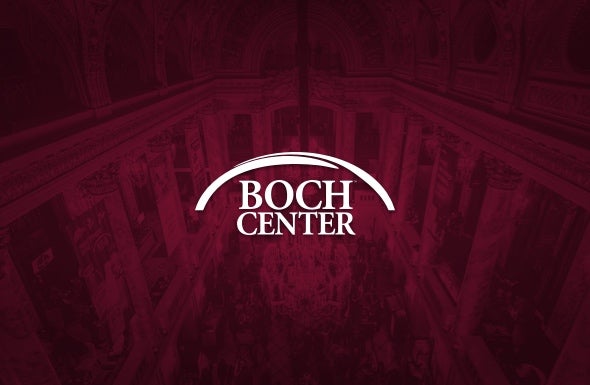Boch Center Getting Back On Its Feet
Federal aid finally arrives, helping with reopening
MASSACHUSETTS’ CULTURAL economy stands among the industries hardest hit by the COVID-19 pandemic. The recent lifting of coronavirus safety restrictions means arts, entertainment, and cultural institutions can finally begin the difficult task of rebuilding audiences. This requires significant financial investments of financial capital and time, but there is hope.
After 14-plus months of quarantine and restrictions, it’s clear that public demand for arts and culture hasn’t waned. The pent-up thirst for live experiences is evident throughout the Commonwealth’s creative economy. Delayed delivery of federal financial aid and logistical constraints, however, provides the clearest indication that the post-pandemic recovery will take time and require ongoing fiscal support.
Following a significant delay, the federal government released some available Shuttered Venue Operator Grant funds in June. The $16-plus billion program, approved late last year with the backing of the Massachusetts congressional delegation, comes as welcome news to the hard-hit arts and cultural community, and not a minute too soon.
Unlike restaurants, bars and retail operations, cultural venues cannot simply turn on the lights and open the doors. A variety of constraints prevent rapid reopening, including tour/event booking conflicts, insurance bond requirements and rehiring of staff. Atop that, venues must expend significant resources to ensure that indoor spaces effectively mitigate the spread of coronavirus or similar organisms.
My organization, the Boch Center, has approached the reopening with a keen focus on the comfort and safety of patrons. Event goers expect to see an array of safeguards following the pandemic. The Boch Center has invested substantial resources in air purification and touchless technology. For example, we are proud to be the first arts venue in the Commonwealth to acquire and install ActivePure Technology, which is NASA developed and FDA-tested equipment that will purify every corner of our two theatres from COVID and a host of other viruses, bacteria and allergens (with a 99.9% rate of effectiveness.) We also invested heavily in state-of-the-art touchless technology, including faucets, security screening, contactless payment for the box office and mobile ordering for concessions.
For arts, entertainment and cultural venues, the financial implications associated with reopening cannot be understated. Our patrons’ comfort is our highest priority, and without their confidence there will be no audiences. We’ve made commitments to secure products and staff, with more than $1 million expended so far. Additional reopening preparations during the summertime will add to the tab. These necessary upfront costs are especially burdensome for non-profit organizations that haven’t earned a penny of income since March 2020. Organizations like ours are obliged to commit to expensive precautions and changes without confirmation that funds will be available.
While the Boch Center is fortunate to have received positive news about grant funding (in excess of $9 million), federal aid will arrive too late for many non-profits. Still, there is more hopeful news. The COVID-19 Cultural Impact Commission – a collaboration between Massachusetts lawmakers, cultural organization leaders and artists – has issued a final report calling for $575 million from the American Rescue Plan Act to support cultural institutions upended by the pandemic. Prior to the pandemic, the Commonwealth’s creative sector contributed more than 70,000 full-time jobs and was valued in excess of $2 billion. Only time will tell how many cherished organizations will close their doors forever, but immediate distribution of the ARPA funds will surely boost the future of an economic sector that impacts the state in immeasurably positive ways.
The COVID-19 crisis has provided memorable reminders about the human need to hear music, experience theater productions, and celebrate art. The arts heal and keep us a civilized society. That’s why we need leaders in the community and across the Commonwealth who stand ready and willing to provide immediate aid to organizations that await relief. Preserving the connection between artist and audience will always be important. The resilient spirit that sustained the arts community during the pandemic represents the true value of the Commonwealth’s cultural economy.
Josiah “Joe” Spaulding Jr. is the president and chief executive officer of the Boch Center, one of the nation’s leading nonprofit performing arts institutions and the operator of the historic Wang and Shubert Theatres.
